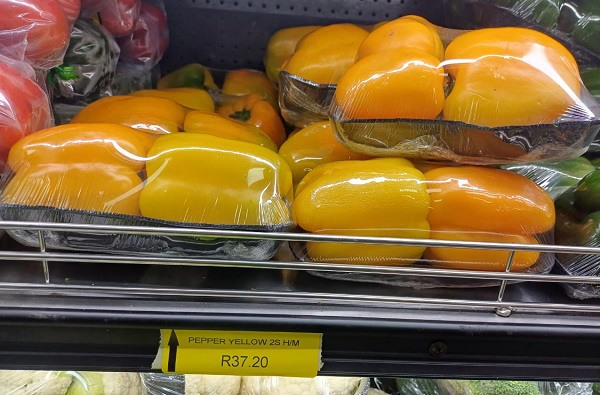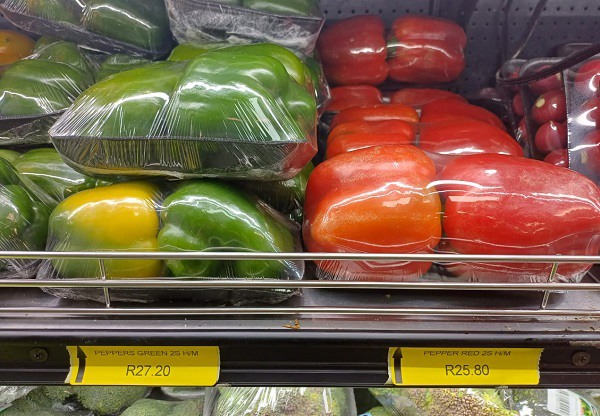After a long and cold winter, peppers are pricey. Green peppers are significantly more expensive than usual, trading at R23(1.1 euro) per kilogram, close to the average market price for red peppers. Yellow peppers are almost R40 (1.93 euro) per kilogram.
 Post-winter pepper supply is down by a quarter
Post-winter pepper supply is down by a quarter
Retailers are hoping that pepper prices will come down by the end of this month because, at the moment, according to AMTrends, they are 48% higher than a year ago.
"Prices are where they should be"
Volumes are reportedly about a quarter lower after the two "very weak" years resulting from an oversupply.
"There's not a shortage of peppers," says a sweet pepper farmer from north of Polokwane. "The demand is firm, and prices are, in fact, at the levels they should be. There's just the right amount on the market."
Growing and selling vegetables have become very expensive undertakings: packaging costs coupled with electricity cuts necessitating diesel generators are but two of a farmer's input costs that have skyrocketed.
"Green peppers are very expensive," says a vegetable category manager at a retailer. "We're selling smaller packs for higher prices than last year."
He notes that cold temperatures held back the development of peppers in the fields, constricting supply.
"After very low prices for red peppers over the past ten weeks, while yellow peppers shot up to R45 per kilogram," says Tinus Venter of Janlouis Boerdery in Limpopo Province. "Red pepper prices remained low, but green pepper prices were very high."
He adds: "We've really needed these strong prices."
There was a period during which they made more on green peppers than on red peppers – an unusual market situation – which is why some farmers picked the red peppers grown under cover early before it had colored up to meet demand for green peppers.
 Green peppers outpricing red peppers last week at a Northwest Province greengrocer
Green peppers outpricing red peppers last week at a Northwest Province greengrocer
Citrus farmers reduce their reliance on peppers
The Polokwane farmer remarks that they've come through two very difficult years on sweet peppers as a result of excessive volumes.
"Everyone was planting peppers. Many citrus farmers were looking for a cash crop, and so they planted sweet peppers, with the result that the market was flooded."
Some citrus growers turned to the vegetable for a quick turnover amid export difficulties, as well as to keep their workforce engaged after the citrus harvest.










